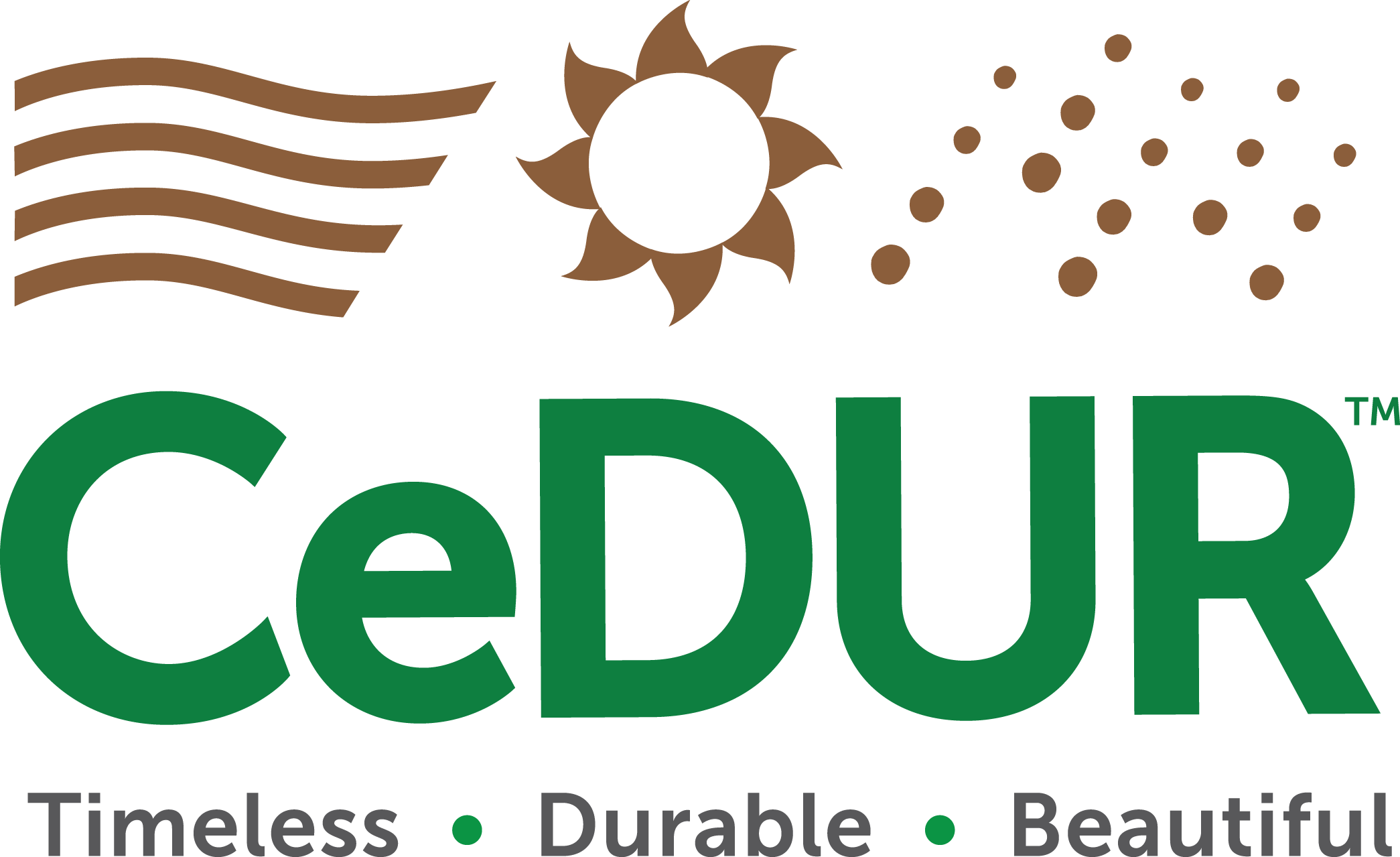Cedar Shake Siding: 5 Major Problems and the Best Alternative
The siding of your home is just as important as your roof. Like the roof, siding serves as a protective barrier, keeping your interior safe from the elements, pests, and moisture. At the same time, it contributes significantly to your home’s curb appeal. One material that has long been admired for its rustic beauty is cedar shake siding, but it comes with several challenges that homeowners should be aware of.
If you’re considering wood shake siding for your home, it’s worth examining its drawbacks and exploring modern alternatives like CeDUR synthetic shakes. Let’s dive into the key issues with cedar shake siding and discover why synthetic options are gaining popularity.
Why People Choose Cedar Shake Siding
Cedar shake siding has been a classic choice for homeowners for centuries, with its roots tracing back to colonial times. Its natural, rustic aesthetic gives homes a timeless charm that’s hard to replicate with other materials. Cedar is also more attractive and durable than materials like vinyl or fiber cement in terms of visual appeal, making it a favorite for those who prioritize style.
5 Major Problems with Traditional Cedar Shake Siding
While cedar shake siding offers undeniable charm, it's important to understand the challenges it presents before making it your choice.
1. High Maintenance Requirements
One of the biggest drawbacks of cedar shake siding is the amount of maintenance it requires. Regular cleaning is essential to remove moss, algae, and debris that can trap moisture. Additionally, cedar shakes need protective treatments every few years to shield them from the elements, moisture, insects, and fire.
Failing to perform this maintenance can lead to significant issues like rot and decay, ultimately shortening the lifespan of the siding.
2. Susceptibility to Mold, Mildew, and Insects
Despite being more durable than softer woods, cedar is still a natural material, making it vulnerable to mold and mildew when exposed to excessive moisture. Leaves, moss, and algae can trap water, creating an ideal environment for mold growth. Once mold sets in, the shakes can begin to rot, leading to costly repairs or replacements.
Cedar is also susceptible to insect damage, particularly from termites and carpenter ants. Without regular protective treatments, these pests can wreak havoc on your wood shake siding, undermining its structural integrity.
3. Difficult Repairs and Replacements
Over time, cedar shake siding can become damaged due to weather, moisture, or impact. Unfortunately, repairing or replacing individual shakes is often challenging. The interlocking design and overlapping installation make it hard to remove and replace damaged shakes without affecting the surrounding ones. This can lead to higher labor costs and longer repair times.
4. Low Fire Resistance
Cedar shakes have a low fire resistance rating, which is a significant concern for homeowners in fire-prone areas. While fire-retardant treatments can improve their safety, these treatments require regular reapplication and are not foolproof. In fact, cedar shake siding is prohibited in certain states like California, Colorado, New Mexico, and Texas due to fire safety regulations.
5. High Costs
Cedar shake siding is one of the most expensive siding materials available. The cost of the material itself is high, and professional installation adds significantly to the overall expense. On top of that, the ongoing cost of maintenance and treatments can make cedar shakes a long-term financial burden.
A Better Alternative: CeDUR Synthetic Cedar Shake Siding
While cedar shake siding offers undeniable beauty, its drawbacks can make it impractical for many homeowners. Fortunately, there’s a modern solution: CeDUR synthetic cedar shake siding. These innovative shakes replicate the appearance of natural cedar while eliminating many of its challenges.
Why Choose CeDUR Synthetic Shakes?
1. Exceptional Durability
CeDUR shakes are made from a polyurethane material that is completely resistant to moisture, ensuring they will never warp, rot, or crack.
2. Low Maintenance
Unlike natural wood, CeDUR synthetic shakes require no special treatments or frequent cleaning. A simple rinse is all they need to maintain their appearance.
3. Fire Resistance
CeDUR shakes have a Class A Fire Rating, the highest rating available, making them a safe choice for homes in fire-prone regions.
4. Impact Resistance
With a Class 4 Impact Rating, CeDUR shakes can withstand hail, falling branches, and other impacts without damage.
5. Lightweight and Easy to Install
CeDUR shakes are lightweight, reducing labor costs and installation time.
6. Authentic Aesthetic
Molded from real cedar, CeDUR shakes mimic the natural beauty of wood, offering options in a variety of colors like Shiloh, Live Oak, Golden Cedar, and Walden to suit any design preference.
3 Design Ideas Using CeDUR Shakes
1. Contrast With Light Siding
Pair CeDUR’s dark-colored shakes with light gray or white siding to create a striking contrast. This combination works especially well with modern rustic designs, adding depth and dimension to your home’s exterior.
2. Accent Features
Use CeDUR shakes as an accent material for gables, dormers, or chimney surrounds. This approach adds visual interest and highlights architectural features.
3. Full Coverage
For a bold statement, cover your entire home with CeDUR shakes. Whether you opt for a single color or mix tones like Golden Cedar and Shiloh, the result is a cohesive, eye-catching exterior that stands out in any neighborhood.
The Best Choice for Long-Lasting Beauty
While cedar shake siding offers timeless appeal, its high maintenance requirements, susceptibility to damage, and significant costs make it less practical for modern homeowners. CeDUR synthetic shakes provide the perfect alternative, combining beauty, durability, and ease of maintenance. With CeDUR, you can achieve the rustic charm of cedar without the hassle.
Contact CeDUR Today
If you’re ready to elevate your home’s exterior with long-lasting, low-maintenance synthetic shakes, CeDUR is here to help. Contact us today to learn more or request a free sample to experience the CeDUR difference firsthand.





